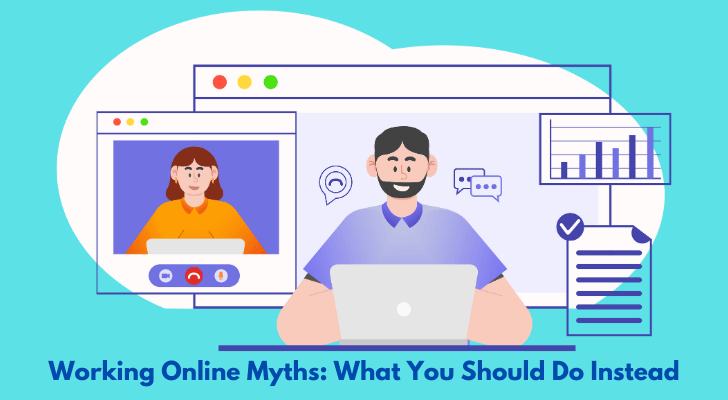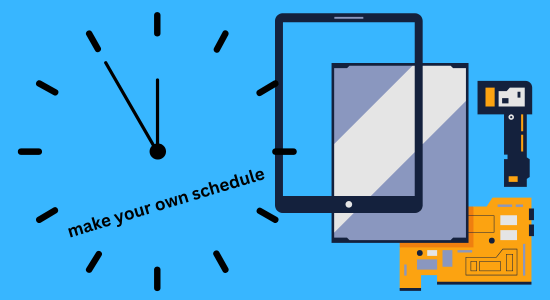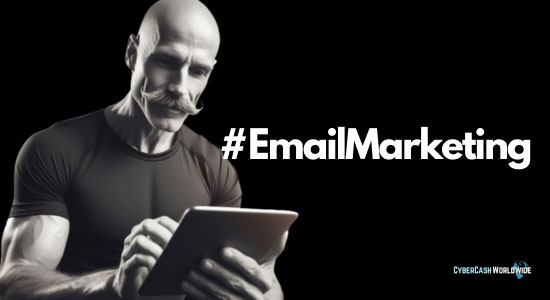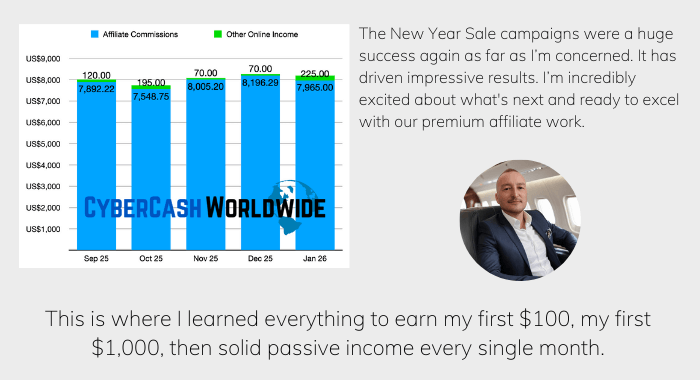The internet loves to paint a picture of the digital nomad life that looks like a permanent vacation with a laptop. When you browse through social media, you see endless posts about people making six figures from a hammock in Bali without any prior skills or effort. These narratives often gloss over the gritty details and the actual mechanics of sustaining a long - term professional life outside a traditional office.
Reliance on these myths often results in a quick burnout or a bank account that stays stubbornly empty after a few months of trial. True success in the remote world demands a sharp pivot away from these romanticized ideas toward a more grounded, strategic method of operation.
Now, let's break down the most common misconceptions about working online and replaces them with gritty, actionable truths for your professional life. If you want a career that actually survives the transition to your living room, you must abandon the easy promises and prepare for a much more disciplined reality.

Visibility and Career Progression
Promotion cycles in a physical office often rely on the fact that your boss sees your face every single day and observes your work ethic in real time. Physical presence creates a natural rhythm of observation that remote workers simply lose by default by virtue of their location and the lack of face - to - face interaction. Remote workers frequently find themselves passed over for big projects because they are not present for the spontaneous hallway conversations that shape the future direction of the company. Proximity creates a psychological effect that digital icons on a screen simply shall not replicate even with the best video technology or the most frequent instant messaging available today. Success requires a much higher level of intentionality than just hitting your daily deadlines and logging off quietly before the sunset each evening.
A reputation for excellence in a distributed team requires you to become your own public relations manager to ensure your efforts do not go unnoticed. Since nobody sees you staying late or helping a teammate at their desk, those actions must be documented and shared through the proper digital channels. Regular updates to leadership should focus on high - impact wins rather than just a list of completed tasks to show your actual value to the organization. Virtual coffee moments should be sought out to maintain the human connection that fuels professional trust among your peers and supervisors alike. Silence is the enemy of the remote climber, so you must fill that void with consistent, high - quality communication that highlights your ongoing contributions.
Industry networking also looks different when you are not attending local mixers or physical conferences with your colleagues on a regular basis. Peers on professional platforms should be contacted aggressively to stay in the loop on industry shifts and new opportunities that could move your career forward. Every digital interaction serves as a brick in your professional reputation, so you should make every message count toward your long - term visibility in your field. A solid status as an expert in niche forums helps bridge the gap created by your physical absence from the main office environment. Your career moves forward when you treat every video call as a high - stakes board meeting rather than a casual chat from your bedroom.
Schedule monthly one - on - one meetings with your supervisor specifically to discuss your long - term growth track. Proactive communication ensures your name stays at the top of the list if new leadership opportunities arise within the organization.
Volunteer for cross - departmental projects that put you in front of stakeholders who do not manage your daily work. This strategy makes your value known to the entire company instead of just your immediate team members.
Create a weekly "impact report" that summarizes how your individual contributions drove revenue or saved time for the company. Data - backed evidence of your worth is much harder to ignore than a vague sense of your presence in the digital office.

Geographic Limitations and Legal Realities
Many people assume that a remote job means they shall hop between countries without any legal or tax consequences for themselves or their employers. Companies often have strict residency requirements due to labor laws and tax treaties that you shall not see at first glance when you read a job description. Your employer needs to know your exact location to ensure they comply with local payroll regulations and insurance requirements for every staff member. A move to a different state or country will create a massive tax headache for the human resources department that could result in legal penalties. Stealthy travel often results in immediate termination if the IT department tracks your IP address to a forbidden region during a routine security check.
Reliable infrastructure remains the biggest hurdle for the aspiring digital nomad who wants to work from remote beaches or rural villages. High - speed internet is a luxury in many parts of the world, and your job depends on a stable connection for video calls and data transfers. Power outages or slow upload speeds will destroy your professional reputation in a single afternoon if you miss a deadline or a client meeting. You need a backup plan for every location, including co - working spaces, local cafes, or satellite internet options that function during a storm. Constant travel drains your energy and makes it difficult to maintain the deep focus required for high - level professional tasks.
Time zones create a physical limitation on your freedom that no amount of technology will fully solve for a global team. If your team operates on a different clock, you shall find yourself attending meetings at three in the morning or working through your local holidays. This lack of synchronization often results in feelings of isolation and exhaustion over several months of trying to keep up with the main office. Home bases should be chosen to align with the core hours of your colleagues to remain an integrated team member who can respond to urgent requests. Freedom of movement sounds great until you realize you are a slave to a clock that never stops ticking in another part of the world.
Research the tax residency laws of your destination before you book a one - way ticket to a new country.Legal compliance protects both your income and your relationship with your employer from unexpected legal trouble or heavy fines.
Invest in a high - quality portable router with multiple SIM cards to ensure you always have a signal in any location. Redundant hardware is the only way to guarantee you never miss a deadline due to a local outage or a weak hotel connection.
Establish a "home zone" where you stay for at least three months to minimize the fatigue of constant relocation. Stability allows you to build a routine that supports your professional output rather than hindering it with travel logistics and constant packing.
The Boundaries of Time and Schedules
Flexibility often turns into a trap where you end up working more hours than you did in a traditional office with a set schedule. Without a commute to mark the start and end of the day, work bleeds into every waking moment and takes over your personal life. You shall find yourself checking emails while eating dinner or responding to messages before you even get out of bed in the morning. This blurring of boundaries makes it impossible to truly disconnect and recharge your mental batteries for the next day of labor. The promise of a custom schedule usually results in a life where you are always on call for everyone at all times of the day.
Clients and managers often expect faster responses from remote workers because they assume you are always near your computer or your phone. Firm boundaries should be set early in your remote career to prevent burnout and resentment toward your professional responsibilities. Explicit statements of your available hours in your email signature help manage expectations without causing conflict with your team or your clients. You should stick to these hours religiously even if you feel the urge to finish just one more task late at night or during the weekend. Respect for your own time teaches others to value your availability as a finite resource that they must use wisely.
Productivity hinges on your ability to create a routine that mimics the structure of a professional environment within your own home. A habit of sleeping in late every day should be avoided because it often results in a disorganized work style that hampers your efficiency. You should aim to start your day at the same time to train your brain for consistent performance and high - quality output. Deep work requires blocks of uninterrupted time that you must guard fiercely from domestic distractions like chores or television. A self - imposed schedule provides the discipline necessary to handle the lack of external oversight from a manager in a physical office.
Use an automated "out of office" reply during your personal hours to inform people when they should expect a response. This practice reduces the pressure to reply instantly and allows you to enjoy your private life without guilt or anxiety.
Designate a particular physical space in your home that is used only for work - related activities during your office hours. Physical separation helps your brain switch from "relaxation mode" to "focus mode" the moment you sit down at your desk.
Block out time on your public calendar for "deep work" to prevent colleagues from filling your day with meetings. Protection of your focus ensures you complete your most difficult tasks during your peak energy hours when you are most productive.

Infrastructure and Technical Investment
Entry - level laptops and shaky home Wi - Fi are rarely enough to support a full - time online career over the long haul of several years. Professional software and high - definition video calls demand hardware that shall handle heavy processing loads without crashing or lagging during a presentation. You will eventually face the high cost of ergonomic furniture to prevent chronic back and wrist pain from long hours spent at a computer. Cheap setups will save money today, but they cost you in productivity and health insurance premiums tomorrow when your body begins to fail. Professionalism in a digital space requires assets that reflect the quality of the work you intend to produce for your clients and employers.
Cybersecurity is another hidden expense that remote workers often overlook until a disaster strikes their system and wipes out their data. You need a dedicated firewall, encrypted storage, and perhaps a virtual private network to protect sensitive client information from prying eyes. Hackers frequently target remote workers because their home networks are often less secure than corporate infrastructures found in a traditional office. Recovery from a data breach is far more expensive than investment in a robust security suite at the start of your remote career. Professional liability insurance also becomes a necessary expense if you operate as a freelancer or independent contractor in a high - risk field.
Maintenance and upgrades fall entirely on your shoulders when you are not in a corporate office with an IT department to help you. A broken screen or a fried motherboard will result in days of lost income if you do not have a backup machine ready for use. You should budget for the eventual replacement of every piece of tech you own to avoid financial shocks when a device fails. Subscriptions for specialized software and cloud storage also add up to a heavy monthly overhead that eats into your profit margins every year. Success requires you to view your equipment as a capital investment rather than just a personal expense for your entertainment.
Allocate a percentage of every paycheck into a "technology fund" to cover future hardware repairs or upgrades. Financial planning prevents a sudden equipment failure from becoming a career - ending event for your business or your job.
Purchase a professional - grade microphone and webcam to improve the quality of your digital communication during video calls. High - quality audio and video make you appear more authoritative and reliable during remote presentations or client interviews.
Invest in a high - speed internet plan with a secondary backup connection from a different provider in your area. Redundant internet access ensures that you stay online even if your primary service provider experiences a localized failure or a technical glitch.
Skill Specialization and Competition
The online job market is a global arena where you compete with thousands of highly skilled professionals from every corner of the world. Low-barrier tasks like data entry are rapidly being automated or outsourced to regions with much lower labor costs than your own country. You shall not expect to earn a living wage without a specialized skill set that sets you apart from the crowd of generalists. A standout presence requires a portfolio that demonstrates your ability to solve complex problems for your clients through your expertise. Mastery of a particular niche is the only way to avoid the race to the bottom in terms of pricing and project quality.
Constant study is the price of admission for anyone who wants to stay relevant in the fast - paced digital economy of the modern era. New platforms and programming languages emerge every year, rendering old skills obsolete almost overnight for those who do not pay attention. You should dedicate time every week to reviewing trends and upgrading your technical proficiency to maintain your competitive edge. Certificates and online courses are helpful, but practical application in real - world scenarios carries more weight with employers and clients. A lack of growth is the fastest way to find your services replaced by a newer, cheaper, or more efficient alternative on the market.
Soft skills like self - motivation and time management are just as necessary as your technical abilities in a remote setting without a boss. Employers look for people who shall work independently without needing constant supervision or reminders about their daily duties. You must prove that you are a reliable communicator who will explain technical concepts to non - technical stakeholders with clarity and patience. Emotional intelligence helps you manage the nuances of text - based communication where tone is often misunderstood by the recipient. Cultivation of a diverse range of talents makes you an indispensable asset rather than a replaceable cog in the machine of the digital economy.
Focus on a high - demand niche like cybersecurity, specialized copywriting, or cloud architecture rather than generalist roles. Specialization allows you to charge premium rates and reduces the number of direct competitors you face in the global market.
Build a public portfolio on professional platforms to showcase your actual work to potential clients and employers. Evidence of your expertise is much more persuasive than a list of claims on a traditional resume during a remote hiring process.
Attend virtual industry workshops and webinars to keep your knowledge current with the latest technological developments in your field. Continuous education ensures that your skill set remains valuable even as the market shifts toward new technologies and methodologies over time.
Financial Management and Tax Burdens
Traditional employment covers many hidden costs like health insurance, retirement contributions, and half of your social security taxes without you noticing. A transition to a freelance or remote contractor model shifts all of these financial burdens directly onto your plate as an independent professional. You must learn to manage complex tax filings and keep meticulous records of every business expense you incur throughout the fiscal year. Failure to set aside a portion of every check for the government will result in a massive bill at the end of the year. Professional financial literacy is a non - negotiable skill for anyone who wants to survive the transition to independent online work for the long term.
Irregular income streams are a common feature of the remote landscape, especially for freelancers and consultants who work on a project basis. You shall experience months of high earnings followed by a sudden dry spell where no new projects appear on your radar. A substantial emergency fund is the only way to handle these fluctuations without falling into debt or losing your home. You should aim to save at least six months of living expenses before you fully commit to a remote lifestyle without a steady salary. Management of your cash flow with a conservative mindset protects you from the inherent instability of the gig economy and market shifts.
Retirement planning becomes your sole responsibility once you step away from corporate compensation packages and pension plans offered by large firms. You have to research and open your own retirement accounts and contribute to them consistently without a company match or a human resources department. Compound interest requires you to start early, even if your initial contributions feel small compared to your monthly expenses and bills. Financial advisors will help you optimize your investments and minimize your tax liability over time to build a secure future for yourself. Control of your financial future is the ultimate form of professional independence and security in the modern world of work.
Consult with a qualified tax professional to set up a precise business structure for your remote work activities. Expert advice will save you thousands of dollars in taxes and prevent costly mistakes with your annual filings to the government.
Automate a transfer of thirty percent from every incoming payment into a dedicated tax savings account immediately. Pre - emptive saving for taxes ensures you are never surprised by a government bill that you cannot afford to pay from your current funds.
Establish a diversified investment portfolio that yields multiple streams of income over the long term for your retirement. Diversification reduces your reliance on a single client or platform and builds a more stable financial foundation for your life as a digital worker.
Social Isolation and Mental Sustainability
Humans are naturally social creatures who thrive on regular interaction with other people in a collaborative environment on a daily basis. Remote work removes the incidental social contact that keeps your mood stable throughout a long work week in a traditional setting. You shall go several days without speaking to another person in real life, which results in a creeping sense of loneliness and detachment. This isolation will negatively impact your mental health and reduce your creative output over time if you do not address it directly. Discovery of ways to satisfy your social needs becomes a mandatory part of your new professional routine as a remote worker.
Digital communication via text lacks the nuances of body language and tone found in face - to - face meetings or casual lunch breaks. You should spend a good amount of energy ensuring your messages are clear and positive to avoid any misunderstandings with your colleagues. These micro - stresses add up and will result in a sense of detachment from the team or a feeling of being an outsider. You should prioritize video calls over text whenever possible to regain that sense of human connection with the people you work with. Active listening and clear expression are your best assets for maintaining healthy professional relationships from a distance without physical meetings.
A social life outside of your work hours becomes the foundation for your long - term success as a remote professional in a digital world. You need a strong network of friends or local groups to supply the stimulation your job no longer offers through an office environment. Local hobby clubs or fitness classes will help you maintain a healthy social life separate from your computer screen and your home office. These interactions provide a much - needed perspective that prevents your work from consuming your entire identity and causing a mental health crisis. A healthy mind is just as necessary for high - quality work as a fast computer or a high - speed internet connection at your desk.
- Join a local co - working space for at least two days a week to surround yourself with other working professionals. A collective environment with other people helps break the cycle of isolation and boosts your overall motivation for your daily tasks.
- Set up regular video coffee chats with colleagues to discuss topics that are not related to your current projects. Informal social interactions build rapport and make the digital workspace feel much more friendly and supportive for everyone on the team.
- Schedule physical social activities in your local area to ensure you leave the house and interact with humans every day. Routine outdoor movement and social engagement are the best defenses against the mental fatigue caused by permanent remote work in a solitary home office.
Success in the digital workspace requires a drastic shift from the popular myths of ease and total freedom found on social media platforms today. You must embrace a mindset of extreme discipline and proactive communication to overcome the inherent hardships of remote work in a global economy.
The trade of the office commute for a home desk is a lifestyle choice that demands a high level of technical and financial self - sufficiency. While the allure of working from a beach is strong, the reality involves complex taxes, expensive hardware, and the constant battle against professional isolation. Focus on building a specialized skill set and maintaining firm boundaries between your work and personal life to thrive over the long term.
Your career will flourish when you replace those hollow online promises with a strategy built on data, reliability, and human connection. Move beyond the fairy tales of the internet and start building a remote career that actually lasts for years.






This is great for the clear eyed perspective in this article. It is easy to buy into the glamour of online work myths, but you highlight the realities effectively, such as how flexible schedules can lead to overwork or poor habits, and why qualifications still give an edge in competitive spaces.
The shift to actionable advice on developing tech savvy, e commerce basics, and personal branding feels useful and grounded. Neutral on the hype, positive on the effort required.
It encourages a mature approach to online opportunities without dismissing their potential. Solid read overall.
Appreciate your comment, Ben. I tried to present the realities without sugarcoating while still pointing to worthwhile paths forward. It is rewarding to know the grounded approach landed well for you. Online work has potential when approached maturely, and focusing on skills like those mentioned helps cut through the clutter. Thanks for reading and reflecting on it.
Thank you so much for putting this out there. Your post is a breath of fresh air in a sea of get rich quick nonsense. I love how you tackled each myth directly, showing the downsides like the hidden costs of constant travel, the risk of laziness
without structure, or the fierce competition when no experience is required. Instead of leaving it negative, you pivot to what works, stressing ongoing learning, skill building in digital areas, and adaptability.
That part about knowledge being power through repeated application really hit home for me. It has inspired me to stop scrolling for magic solutions and start
putting in the work on things like SEO practice or networking authentically. Posts like this help set people up for actual long term wins, not quick disappointments. Keep sharing this kind of real talk.
Thank you, that enthusiasm means a lot. Breaking down the myths was necessary to clear the path for better advice, and I am happy it inspired action rather than more scrolling. The real wins come from persistence in learning and adapting, just as you noted. Keep that momentum going, and thanks again for the positive energy in your comment.
I have seen so many people get burned by those over hyped promises about online work, like making your own schedule without any structure or traveling the world while earning passively.
You did a solid job breaking down why those myths do not hold up and what actually matters, like investing in skills and staying disciplined. Thanks for that. It is nice to read something straightforward that pushes real effort over luck. Appreciate the practical advice on things like personal branding and cybersecurity too. This feels like a wake up call in the best way. Thank you for the great post, good job.
Thanks for the kind words. I aimed to keep it straightforward and avoid adding to the noise out there. It is frustrating to see people chase illusions, so highlighting the need for structure and real effort felt important. Glad the practical bits stood out to you. Stay focused on building those skills, and feel free to reach out if any section sparks questions.
Thank you for this refreshingly honest take on working online. Too many articles promise the moon with zero effort, but you cut through that noise by addressing the myths head on, like the idea that you can just work from anywhere without real constraints or that no qualifications are needed.
I especially appreciated how you pointed out the competition in low barrier fields and the need for discipline to avoid burnout even with flexible schedules. Your emphasis on continuous learning, building actual skills in areas like digital marketing or web development, and staying adaptable really resonates.
It is a reminder that sustainable success comes from consistent practice and realistic expectations, not hype. This post motivated me to refocus on practical steps instead of chasing shortcuts. Great job grounding the conversation in reality while still encouraging progress.
Hi Vincent, thanks for the thoughtful feedback. I am glad the post resonated and helped shift focus toward practical steps. Spotting the difference between appealing myths and real requirements is key, and it is encouraging to hear it motivated you to prioritize consistent skill building. Keep applying what you learn, and the results will compound over time. Appreciate you taking the time to share your thoughts.
Solid overview here. The myths covered are ones I see repeated a lot online, and the alternatives suggested make sense for building something real. Good to see emphasis on effort and learning over shortcuts.
This post does a good job calling out the usual myths about online work and offering grounded alternatives instead of hype. It covers key areas like career advancement challenges, true flexibility limits, equipment realities, and why qualifications still give an edge. The push toward consistent practice and resources feels practical.
Thanks for the positive note. Spotting those repeated myths and shifting focus to practical steps was the goal, so I’m happy it landed that way. The emphasis on effort, qualifications, and ongoing practice is what separates sustainable progress from fleeting attempts. Glad you found it useful and grounded.
I found this article quite informative and well-structured. It effectively challenges the glamorous narratives around online work by addressing myths head-on with practical counterpoints. For instance, the discussion on schedule flexibility being double-edged, or how "work from anywhere" often overlooks real logistical and legal hurdles, adds valuable nuance. The stats on remote work benefits provide credibility, while the call to invest in ongoing education across tools and disciplines encourages proactive steps. It's neither dismissive of online opportunities nor blindly promotional, striking a fair tone that promotes informed decisions.
Hi Hitesh, appreciate your detailed take on it. Structuring the myths with direct alternatives and backing points with relevant stats was meant to give readers something actionable rather than vague inspiration. The nuance around flexibility and location freedom is something many overlook until they experience it. Encouraging skill investment in practical areas feels essential for longevity. Thanks again for engaging so thoroughly, feedback like this reinforces why clear, honest content matters.
Great post, it's a sensible breakdown of online work myths. It correctly points out that flexibility and location independence are not as effortless or universal as often portrayed, and that qualifications still matter in a crowded field. The suggestions to prioritize skill development and authentic networking align with what actually works long-term. Overall, a level-headed piece that avoids promising miracles.
Thanks for the feedback. I aimed to keep things straightforward and realistic, focusing on what holds up in practice rather than idealised versions. You’re right that qualifications and genuine effort stand out in competitive environments, and networking needs to stay authentic to be effective. Glad the core message came through clearly. Comments like yours help confirm the approach is useful for readers navigating these choices.
Hi, thank you for a very useful one, Raydar. The article provides a realistic, grounded take on remote and online work by debunking several common myths. It counters overly rosy promises with practical advice, like the need for real skills, consistent effort, and smart choices over get-rich-quick ideas. I appreciate how it balances the positives, such as productivity gains, better work-life balance for many, and lower barriers in some areas, while warning about competition, visa issues, schedule pitfalls, and the importance of building qualifications. The emphasis on continuous learning in fields like SEO, e-commerce, or content creation feels motivating without being hype-filled. It's a refreshing read in a space full of exaggerated claims. This kind of honest perspective helps newcomers set proper expectations and focus on sustainable paths forward.
Thank you for this thoughtful comment. I’m glad the balanced view resonated with you, especially the push against hype and toward real skill-building. Highlighting both the upsides, like improved productivity and satisfaction stats, and the realities, such as global competition and the need for discipline, was intentional to give readers a clearer picture. Your point about sustainable paths is spot on, continuous learning and adaptability really are key in this evolving space. Appreciate you taking the time to read and share such a detailed reflection, it means a lot.